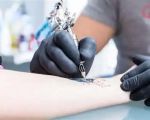Are Tattoo Shops Required to Pay for Hepatitis B Vaccination?
As a tattoo artist or owner of a tattoo shop, one of the crucial aspects of maintaining a safe and sanitary working environment is understanding the importance of vaccinations, particularly when it comes to bloodborne diseases like Hepatitis B. In this article, we will explore the requirements around Hepatitis B vaccination for tattoo shop employees, the responsibilities of tattoo businesses, and the safety measures that should be taken. If you're in the tattoo industry, it's essential to understand these aspects for the well-being of both the artists and their clients.
The Importance of Hepatitis B Vaccination in the Tattoo Industry
Hepatitis B is a viral infection that attacks the liver and can lead to chronic diseases such as cirrhosis or liver cancer. The virus can be transmitted through contact with infected blood, which is why tattoo artists and staff are at risk due to the nature of their work. Tattooing involves the use of needles and the potential for accidental blood exposure, making vaccination critical in preventing Hepatitis B transmission.
What Is the Legal Requirement for Hepatitis B Vaccination?
The legality of Hepatitis B vaccinations for tattoo artists varies from state to state in the U.S. In many places, it is not explicitly required by law for tattoo artists to be vaccinated, but health and safety regulations encourage it. For instance, OSHA (Occupational Safety and Health Administration) provides guidelines for bloodborne pathogens, which include Hepatitis B. While OSHA does not require employers to pay for vaccinations, they do recommend offering the vaccine to workers at risk of exposure. It's important for tattoo shop owners to familiarize themselves with local and state regulations regarding the need for vaccinations in the workplace.
Are Tattoo Shop Owners Responsible for Vaccinating Employees?
In the U.S., tattoo shop owners are not always legally required to pay for Hepatitis B vaccinations. However, employers are often advised to offer the vaccine to employees who may come into contact with blood or bodily fluids. This includes tattoo artists, piercers, and other staff members who are directly involved in the application of tattoos. Offering the vaccine is considered best practice to ensure workplace safety and compliance with industry standards.
The Cost of Hepatitis B Vaccination for Tattoo Workers
The cost of the Hepatitis B vaccine is relatively low, and it typically involves a series of three injections over a six-month period. For tattoo shop owners, offering to cover the cost of the vaccine for employees is an investment in both employee health and the business’s reputation. If employees are expected to pay for the vaccination themselves, it may discourage them from getting vaccinated, potentially increasing the risk of exposure to the virus.
What Are the Benefits of Vaccinating Tattoo Shop Employees?
Vaccinating tattoo artists has many benefits, both for the individuals receiving the vaccine and for the business as a whole. For employees, receiving the Hepatitis B vaccine helps protect their health and ensures they are not at risk of contracting a virus that could lead to serious health issues. For the business, offering the vaccine can improve morale, create a safer work environment, and enhance customer trust. Clients who are aware that a tattoo shop takes safety seriously may feel more comfortable and confident in the shop’s ability to protect their health.
How to Encourage Hepatitis B Vaccination at Tattoo Shops
If you're a tattoo shop owner, one of the best things you can do is provide education to your staff about the risks of Hepatitis B and the benefits of getting vaccinated. Offering the vaccination at no cost to employees is a powerful way to show your commitment to their health and well-being. Additionally, creating a workplace culture that values health and safety can help foster positive relationships with staff and build trust with clients.
Conclusion: Understanding Hepatitis B Vaccination in Tattoo Shops
While tattoo shops are not always legally required to pay for Hepatitis B vaccinations, offering the vaccine to employees is a smart and responsible practice. Not only does it protect the health of tattoo artists and other staff members, but it also ensures that the business complies with health and safety guidelines. By investing in vaccinations, tattoo shop owners demonstrate their commitment to safety, both for their employees and their customers. Whether legally required or not, providing Hepatitis B vaccinations is a valuable step in creating a safer and more professional tattoo environment.








